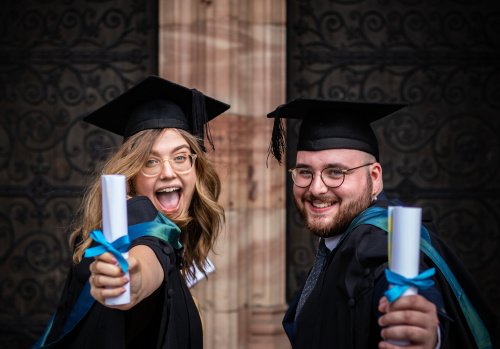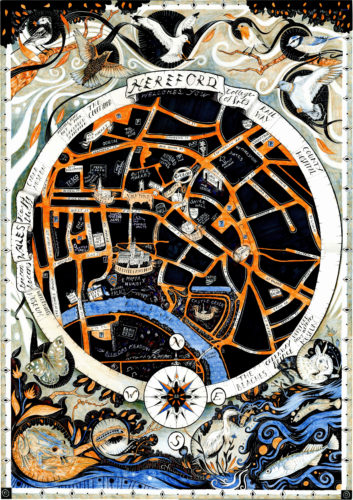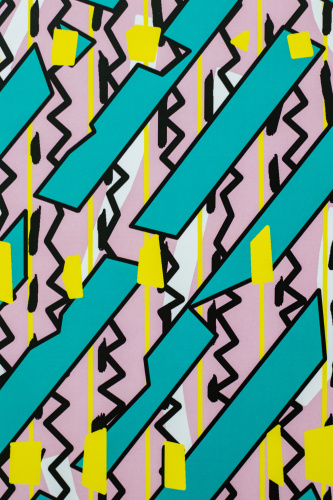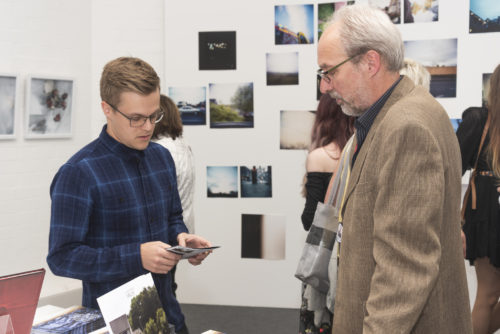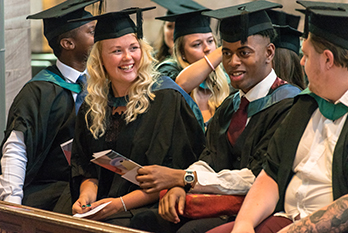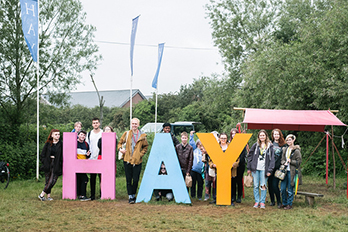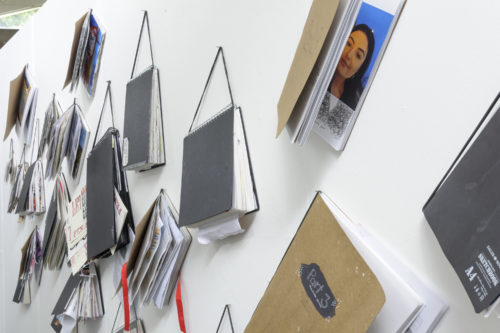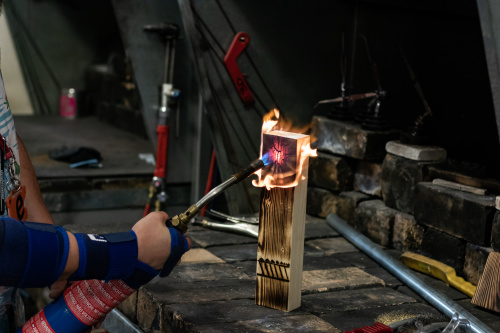Peer support in a less-formal learning environment: L4 Graphics students reflect on their module
Published on 27.06.16
Kolb’s experiential learning cycle (1984) has been seminal in promoting the importance of reflective practice as an integral part of learning. However, engaging students with reflection in ways that the modern student finds appropriate can be challenging, especially in an art college context where many of our students prefer active learning to ‘reflective observation.’ Likewise,
Categories
Kolb’s experiential learning cycle (1984) has been seminal in promoting the importance of reflective practice as an integral part of learning. However, engaging students with reflection in ways that the modern student finds appropriate can be challenging, especially in an art college context where many of our students prefer active learning to ‘reflective observation.’ Likewise, some learners struggle to make the conceptual leap required for what Kolb termed ‘abstract conceptualisation’, where learning and events are evaluated, and knowledge begins to be de-contextualised from the learning experience.


BA (Hons) Graphic and Media Design course leader Innes Jones came up with a solution to support his students in their post-module assessments. This reflection on their learning is an integral part of the course, but Innes found that students working alone were less likely to reflect beyond a surface level and without tutor support they could fail to record their reflections in a meaningful way.
Likewise, Innes found that reflecting in the studio environment often hampered student progress. The studio is an active learning space where graphics students are encouraged to work independently. Patterns of behaviour learned within it are not those of reflection-on-action but reflection-in-action (Schon, 1983).
To ensure that students received appropriate support that also encouraged them to develop the independent reflective skills necessary to achieve potential at L5, Innes brought in a range of interventions.
First, he constructed a very open proforma, which scaffolded the asking of critical reflective questions regarding the course module. These he physically printed out rather than distributing using digital media, something unusual on a graphics course where much teaching takes place on a digital platform. In this context a move to paper signified to students that this was an important activity – not part of everyday practice.
Secondly, rather than asking students to complete the proforma individually as part of independent study, he facilitated peer support groups and suggested a rough framework for discussion, so students had to discuss their answers with each other and consider how far they had represented their ideas on the paper template. As Keenan’s (2014) executive summary states:
…benefits are reported for students who participate in peer-led learning sessions… Academically, students take greater ownership of their learning experience, show fuller engagement, improved grades, and demonstrate better retention.
Keenan’s findings also suggest that this kind of peer learning is very appropriate to supporting L4 students with their move to HE as it supports learner confidence.
Finally, Innes considered ideas of the learning space (Neary and Beetham in Lea, 2015) and moved the peer-supported reflection to Hereford College of Art’s café. This move to a less-formal learning space encouraged students to be less reliant on tutor feedback, therefore supporting active peer support and discussion of the proforma. Arguably, it could also foster confidence, moving the learning platform to one where the students already felt comfortable participating in live debates.

Innes intends to begin more formal research into how this approach of flexibly mixing intervention strategies might support learner outcomes – we will be disseminating his findings next year.
References
Keenan, C (2014) Mapping student-led peer learning in the UK; Available as .pdf from https://www.heacademy.ac.uk/resource/mapping-student-led-peer-learning-uk [date last accessed 14/6/15]
Lea, J (2015) Enhancing Learning and Teaching in Higher Education: engaging with the dimensions of practice, OUP, Maidenhead
Schön, D. (1983). The reflective practitioner: How professionals think in action, Basic books.
Mobbs, R. (no date) University of Leicester graduate school: David Kolb. Available at http://www2.le.ac.uk/departments/gradschool/training/eresources/teaching/theories/kolb [date last accessed 14/6/16]
